Technical Reports Environment
This page lists technical reports of PIARC in the field of environment. These publications are classified chronologically.
-
Road transport system and environment preservation - Review of national policies
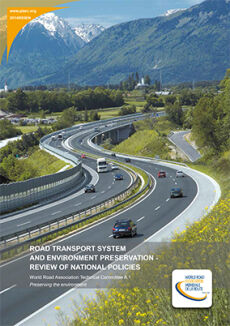
Climate change is one of the most serious threats facing the world today. There is compelling scientific evidence that the global climate is changing and the primary cause is the release of greenhouse gases resulting from human activity. Many governments are putting in place legislative and policy frameworks at a national level to address climate change. Whilst transport is a key driver of the economy, it is also a significant and growing contributor to greenhouse gas emissions. Recognizing that [...]
-
Alternative solutions for fossil fuels for the road system
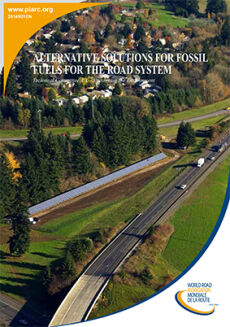
The report looks at the technologies available to generate energy in the highway context and also qualitatively assesses the opportunity to reduce the energy used by existing highways infrastructure. Case studies related to some potential technologies and techniques are presented: thermal collection, photovoltaic collection, wind microgeneration, water microgeneration, efficient use of new materials. There exists a variety of different ways in which energy can be generated by innovative use [...]
-
Innovative approaches towards the use of locally available natural marginal materials
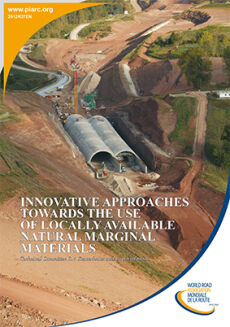
The utilization of materials locally available on the site of a road project is a major concern in the context of sustainable development and perfectly meets the socioeconomic and environmental criteria involved in it. The report is based on the answers received from twenty-two countries. Five different families of locally available marginal natural materials have been identified. Information on placing and processing is given for each country. A comparison is also made of classifications and [...]
-
Vulnerability of Geotechnical Infrastructure to Climate Change and Adjustment Measures According to the Geographical Context
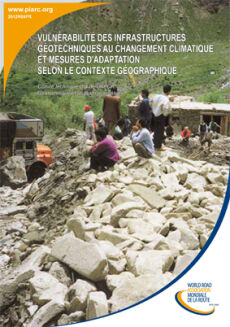
The report identifies foreseeable damage and the measures to be taken in a geographical context where climatology and geomorphology are aggregated. Five climate trends are covered: increase of average temperatures; decrease of average precipitation; increase of winter precipitation; increased intensity of extreme precipitation; and increased storm severity. These five trends result in thirteen induced general phenomena, to which nine types of road damage are linked. The geomorphology approach [...]
-
Dealing with the effects of climate change on road pavements
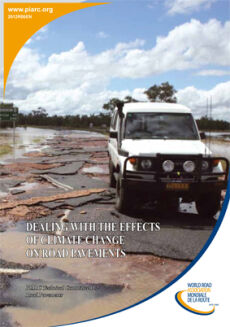
Climate change can have a direct impact on the performance of our transportation infrastructure. The purpose of the report is to sensitize the road sector to the likely impacts of climate change on road pavements and to provide guidance on how to go about: -Assessing the vulnerability of road pavements to the direct impacts of climate change, and; -Identifying and prioritizing possible adaptation measures for road pavements that could be applied immediately or phased in over time, so as to [...]